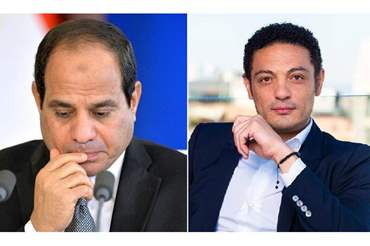The Front for Defending Abbasiya Mental Health Hospital revealed the intention of the hospital’s administration and the General Secretariat of Mental Health at the Ministry of Health, to concede a land plot, which was designated for establishing a mental health hospital for children, adolescents and addicts, to a so-called “sovereign body,” which will lease the land to establish a shopping area.
The step continues the state’s attempts to acquire land belonging to the Abbasiya Mental Health Hospital, one of the few free hospitals designated for mental health in Egypt, due to its privileged location in the centre of Cairo, but this time the matter is assigned to the so-called “sovereign body,” in reference to one of the military or security authorities, in order to intimidate those who raise the issue that their opposition of the matter could lead them to a military trial.
Not the first attempt
The Front for Defending Abbasiya Mental Health Hospital said that it had detected a new attempt by the administrations of Abbasiya Hospital and the General Secretariat of Mental Health to acquire a plot of 7,500 square metres, 25 metres deep and 300 metres long, on the front of the hospital, which overlooks the main Ramses Street in central Cairo. The front confirmed that in early August, the hospital administrations and the General Secretariat of Mental Health had brought in a non-health related entity to lease the aforementioned plot of land for a period of 20 years, for the purpose of establishing shops.
The front’s statement did not specify the party that was not concerned that applied to lease the land, but Doctor Ahmed Hussein, the Front’s coordinator, explained in press statements that it is one of the sovereign bodies in the country, a term used to refer to the army and intelligence. This is the second attempt by the same officials to forfeit the land of Abbasiya Hospital, where the hospital administrations and the General Secretariat for Mental Health earlier this year attempted to lease a plot of land to the Ministry of Military Production for the purpose of establishing shops, in return for the ministry receiving 60 per cent of the project’s profits, while the hospital management gets 40 per cent of the profits, but the agreement was not completed for an unknown reason.
The problem was that the land referred to was allocated for the establishment of a hospital for the treatment of mental disorders in children, mental illnesses and addiction in adolescents, and more than EGP 1.8 million of the mental health budget were spent on studies and engineering drawings for this project, which is the only one in the Middle East. However, the hospital project was halted due to the inability of the consulting office to obtain a building permit from the district. Leasing land for a commercial purpose is a constitutional violation, as Article 18 of the Egyptian constitution states that “the state guarantees the preservation and support of public health services facilities that provide services to the people and work to raise their efficiency and equitable geographical spread.”
Money speaks
The Egyptian regime continues to operate with a money first attitude, where money is the most important and above all considerations, even if this consideration is the psychological health of Egyptians. According to the Central Agency for Statistics and Mobilisation, the General Secretariat for Mental Health and Addiction Treatment, and the World Health Organisation, of the secondary school students in Egypt in the age group from 15 to 19, which is estimated at approximately 10 million people, 30 per cent of them suffer from psychological problems, 0.86 per cent of them are addicted to drugs, and 4.7 per cent smoke tobacco, sheesha and electronic cigarettes.
One out of 160 children suffer from autism, while attention deficit hyperactivity disorder affects about eight per cent of children, and conduct disorder or aggressive behaviour affects four to 10 per cent of children. Twenty-five per cent of Egyptians suffer from psychological problems, and only 0.4 per cent of them receive treatment, while there are more than 3.5 million patients suffering from addiction.
Countries do not spend more than two per cent of the health budget allocated to them on mental health, while mental and behavioural disorders represent 13 per cent of the burden of disease in the world. The state is ignoring all these statistics, raising the slogan “money speaks” and “the money interest is winning,” deciding to move forward to control the lands of the first hospital specialising in the treatment of mental disorders in children, psychiatric diseases and addiction in adolescents, which is supposed to be a priority national project.





Recent Comments